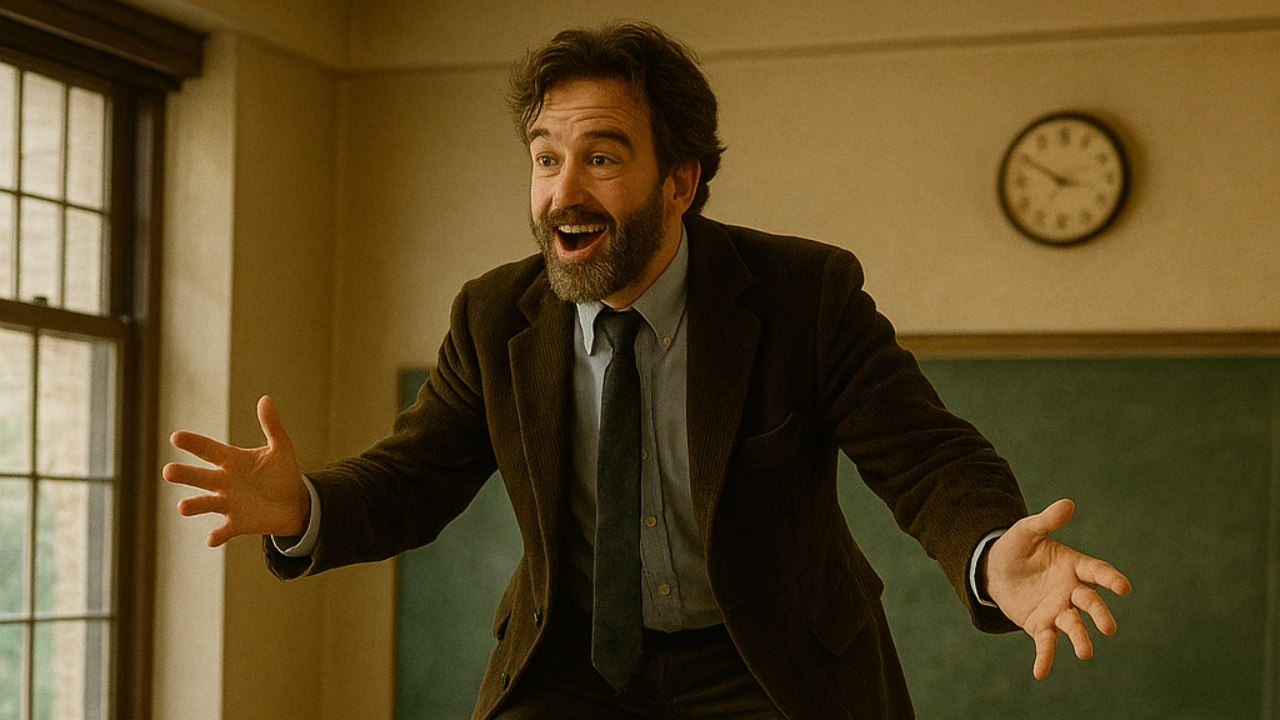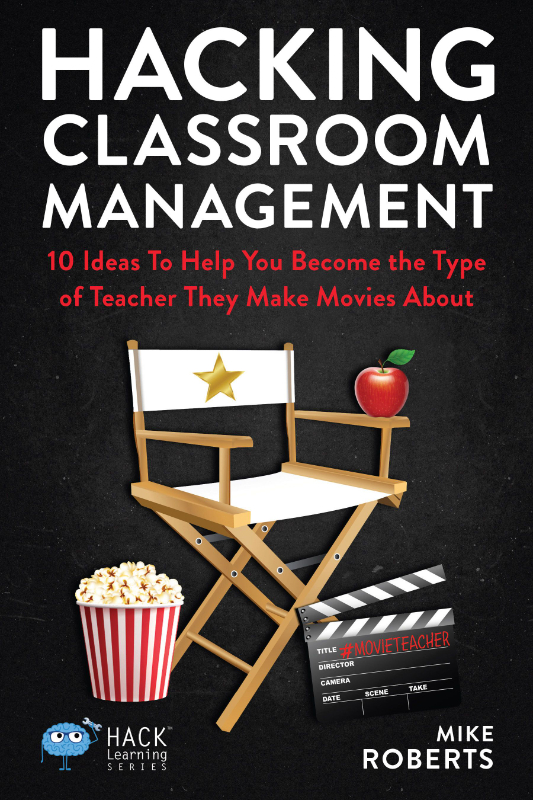6 ways to be the John Keating of your school
May 05, 2025
In the dimly lit classroom of Dead Poets Society, John Keating leaps onto his desk and declares, “I stand upon my desk to remind myself that we must constantly look at things in a different way.” His students look on—some amused, some confused—but all captivated. Keating, played by Robin Williams, wasn’t the kind of teacher who handed out worksheets and followed the curriculum like a checklist. He was the teacher who changed lives. The kind of teaacher they make movies about.
If you’ve ever watched a film like Dead Poets Society, Freedom Writers, or Stand and Deliver and thought, “I want to be that kind of teacher,” you’re not alone. These cinematic educators leave a lasting impact not just on their students, but on audiences around the world. And while Hollywood may exaggerate a bit, the core of what makes these teachers special is very real—and very replicable.
Try This: Shake up your classroom rituals. Switch up seating. Introduce a lesson with a surprising question or unexpected prop. Novelty signals students that something meaningful is happening.
Here’s how you can channel your inner Keating and become the kind of teacher students remember for a lifetime.
1. Teach with Passion, Not Just a Plan
John Keating didn’t just teach poetry—he lived it. When he quoted Whitman or Thoreau, it wasn’t just for analysis; it was to show students how words could stir the soul. Passion is contagious. When students see a teacher light up over a subject, they start to believe it matters.
Try This: Start one lesson each week by sharing why you care about what you’re teaching. Tell a story about how it connects to your life. Enthusiasm opens the door to engagement.
2. Break the Mold—Creatively
Keating didn’t stay tethered to his desk. He took students outside, had them rip pages from textbooks, and stood on furniture to change perspective. These symbolic actions weren’t just stunts—they were strategic breaks from routine that challenged students to think differently.
Try This: Shake up your classroom rituals. Switch up seating. Introduce a lesson with a surprising question or unexpected prop. Novelty signals students that something meaningful is happening.

3. Invite Curiosity and Critical Thinking
In one iconic scene, Keating encourages students to look at the world from new angles—literally and intellectually. He doesn’t tell them what to think; he guides them in how to think. Great teachers don’t give all the answers—they create space for exploration.
Try This: Instead of starting a lesson with content, start with a mystery. Pose a problem. Offer conflicting perspectives. Let students wrestle with big ideas before you explain them.
Drill down on these strategies.
Read Hacking Classroom Management today
4. Build a Culture of Belonging and Boldness
Keating calls his students to “seize the day”—carpe diem. He believes in them before they believe in themselves. His classroom isn’t just a space for learning; it’s a space for becoming. Students feel safe enough to speak up, take risks, and be themselves.
Try This: Create small daily rituals that affirm student voice. Start class with a quote and a moment to reflect. Ask “What do you think?” more than “What’s the right answer?” Celebrate effort as much as achievement.
5. Challenge the Status Quo—With Care
Keating didn’t rebel for rebellion’s sake. He challenged rigid expectations because he believed in something deeper—helping students find their authentic voice. He taught within a system, but he didn’t let the system define his teaching.
Try This: Be the voice in your school that questions practices that don’t serve students. Model respectful dissent. And empower your students to challenge injustice and express individuality through learning.
6. Love the Learner More Than the Lesson
At the heart of every great movie teacher is this truth: they see their students. Not as data points or test scores, but as full humans. Keating knew his students' names, struggles, dreams. He didn’t just want to teach poetry—he wanted them to live it.
Try This: Write a note to one student a week recognizing their growth. Ask about their interests and remember their answers. Show up to their games, plays, or performances. Your attention tells them they matter.
Final Word: You’re Already Closer Than You Think
You don’t need a Hollywood script to be a legendary teacher. The best ones—the ones kids remember decades later—are real people, in real classrooms, who show up with heart, courage, and creativity. You already have what it takes.
So tomorrow, stand on your metaphorical desk. Shake things up. Ask a bold question. Connect a lesson to a life. Invite students to discover something they didn’t know about the world—or about themselves.
Because when you do, you won’t just be teaching.
You’ll be inspiring.
And that’s how legends are made.






